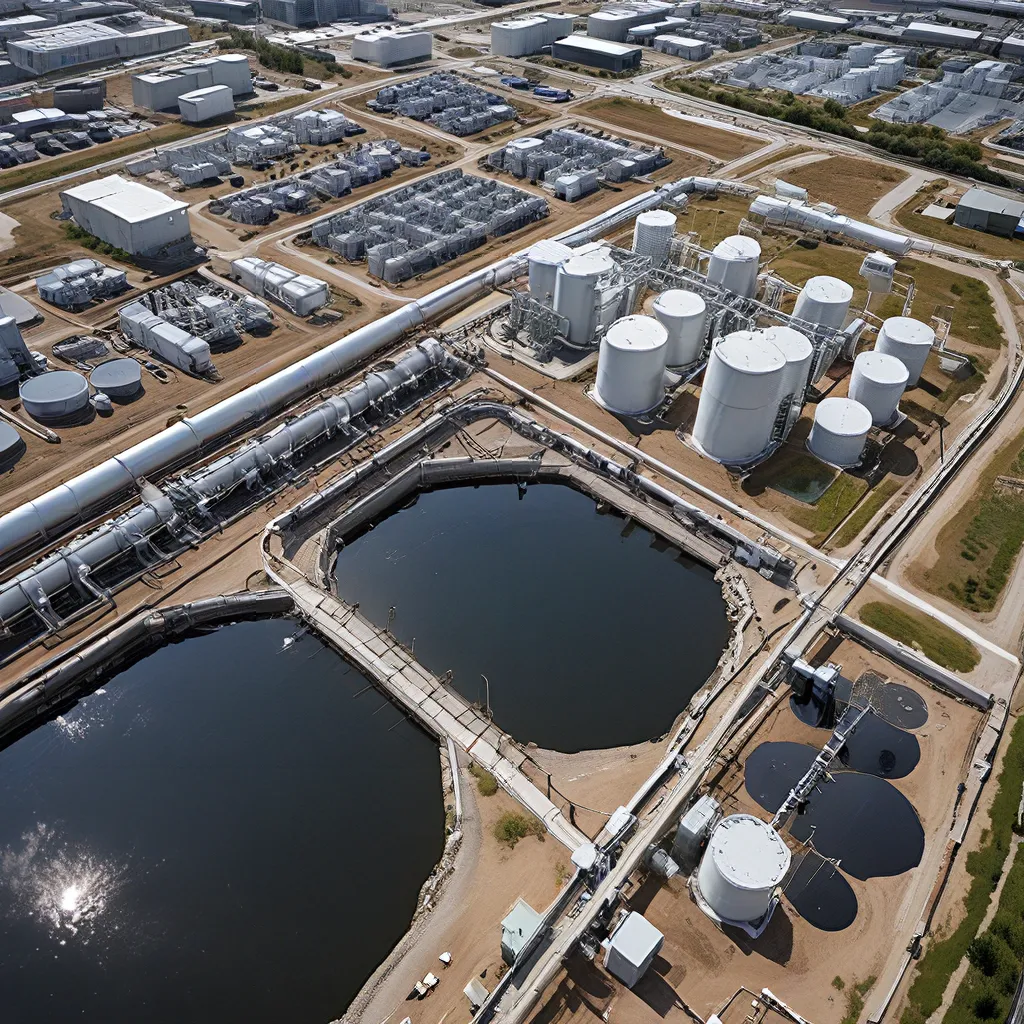
As an energy and sustainability enthusiast, I’ve always been fascinated by the intricate relationship between wastewater treatment and the electricity grid. It’s a fascinating intersection where innovation, technology, and environmental responsibility collide. Let me take you on a deep dive into this captivating world and explore how we can harness the power of smart grid integration to revolutionize the way we manage our precious water resources.
Unlocking the Potential of Wastewater Treatment
Wastewater treatment is a crucial yet often overlooked aspect of our modern infrastructure. It’s the unsung hero that keeps our communities clean, our waterways healthy, and our environments thriving. But did you know that this essential process is also a significant consumer of energy? In fact, wastewater treatment plants can account for up to 30% of a municipality’s total energy usage.
“Wastewater treatment is an energy-intensive process, with energy costs typically representing 25-40% of a wastewater treatment plant’s total operating budget.” 1
This is where the smart grid comes into play. By integrating wastewater treatment facilities with the broader electricity grid, we can unlock a world of energy optimization and cost savings. Imagine a future where our wastewater plants not only clean our water but also contribute to the grid’s stability and efficiency.
Embracing Smart Grid Integration
The key to this transformation lies in the seamless integration of wastewater treatment operations with the smart grid. This approach allows for the real-time monitoring and dynamic control of energy consumption and generation within the wastewater treatment process.
Smart Energy Water (SEW), a leading provider of digital solutions for the energy and water industries, has been at the forefront of this revolution. Their AI-powered platforms and IoT-enabled technologies are empowering wastewater treatment facilities to optimize their energy usage and contribute to the grid’s stability.
“By leveraging advanced technologies such as AI, ML, and IoT, we enable end-to-end energy transformation. Our focus is on empowering energy customers, adopting modern technologies like AI, optimizing field service management, and strengthening grid resiliency.” – SEW
Through integrated data analytics, wastewater treatment plants can now identify energy-saving opportunities, engage customers intelligently, and provide valuable insights on water conservation and waste reduction. This holistic approach not only benefits the wastewater treatment facility but also supports the broader energy ecosystem.
Harnessing the Power of Renewable Energy
One of the most exciting aspects of smart grid integration is the seamless integration of renewable energy sources. Wastewater treatment plants can now harness the power of solar, wind, and other renewable energy to offset their energy consumption and even become net contributors to the grid.
Studies have shown that by optimizing the energy usage of wastewater treatment facilities and integrating renewable energy sources, we can achieve significant cost savings and environmental benefits. This not only reduces the carbon footprint of the wastewater treatment process but also supports the transition towards a more sustainable energy future.
“Our digital platforms enable comprehensive flow data analysis, detection of billing and rate anomalies, and usage trending for pattern analysis. With our end-to-end workflow management, we enhance the efficiency and effectiveness of investigations, ensuring swift and appropriate actions are taken.” – SEW
Empowering Customers and Communities
Smart grid integration doesn’t just benefit the wastewater treatment facilities; it also empowers customers and communities to play a more active role in water conservation and sustainability.
Through advanced analytics and intuitive digital platforms, customers can track their water usage, compare consumption patterns, and receive personalized recommendations on how to reduce waste and optimize their water usage. This not only drives behavioral changes but also fosters a sense of environmental responsibility within the community.
“Our AI platforms empower the adoption of distributed energy resources (DERs), battery storage, and a resilient water-energy nexus, promoting and driving sustainable practices.” – SEW
Furthermore, smart grid integration allows wastewater treatment providers to offer innovative programs and incentives that encourage water conservation and efficiency. From rebate schemes to water-saving tips, these initiatives help to amplify the impact of the wastewater treatment-smart grid synergy.
Paving the Way for a Sustainable Future
As we look to the future, the integration of wastewater treatment and smart grid technology holds immense promise. This intersection of innovation, efficiency, and environmental responsibility is poised to transform the way we manage our water and energy resources.
Alpha Wastewater, a leading provider of wastewater treatment services, is at the forefront of this transformation. By partnering with cutting-edge technology providers like SEW, they are empowering their clients to unlock the full potential of smart grid integration.
Through this collaboration, wastewater treatment facilities can reduce their carbon footprint, optimize their energy consumption, and contribute to the grid’s resilience. Moreover, they can engage customers, drive water conservation, and foster a more sustainable future for their communities.
As I reflect on the remarkable potential of this wastewater treatment-smart grid convergence, I can’t help but feel a sense of excitement and optimism. It’s a testament to the power of innovation, collaboration, and a shared vision for a more sustainable tomorrow.
“Together, let’s create a better world for generations to come. Lets explore how digital platforms can play a pivotal role in achieving these ambitious sustainability goals.” – Deepak Garg, Founder and CEO, SEW
So, what are you waiting for? Join me on this transformative journey as we redefine the future of wastewater treatment and pave the way for a more energy-efficient, water-conscious, and sustainable society**.